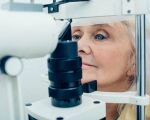- 1 - Understanding Digital Eye Strain
- 3 - Practical Strategies to Prevent Digital Eye Strain
- 4 - Adjusting Your Workspace for Optimal Eye Health
- 5 - Lifestyle Habits That Support Eye Comfort
- 6 - Real-Life Example: Successful Management of Eye Strain
- 7 - Where to Find Professional Eye Care and Products
1. Understanding Digital Eye Strain
Digital eye strain, often called computer vision syndrome, is a common condition affecting millions who spend significant time in front of screens. Symptoms include dry eyes, blurred vision, headaches, and neck or shoulder pain. Recognizing these symptoms early and learning how to prevent digital eye strain from screens can preserve your eye health and improve daily comfort.
The rapid growth of remote work and digital entertainment means many people face prolonged exposure to screens, making prevention strategies more relevant than ever.
1.1 Why Screens Cause Eye Strain
Screen glare, blue light emission, and reduced blinking rates contribute to eye fatigue. Additionally, focusing on close objects for long periods forces the eye muscles to work harder, leading to discomfort and strain.
2. Common Causes of Screen-Related Eye Fatigue
Understanding what triggers digital eye strain helps in effectively counteracting it. The main causes include:
2.1 Poor Lighting and Screen Glare
Working in poorly lit environments or with harsh overhead lighting causes reflections and glare that force your eyes to strain more.
2.2 Incorrect Screen Distance and Position
Having your screen too close or too far, or positioned at an uncomfortable angle, can increase eye fatigue and neck strain.
2.3 Lack of Breaks and Blinking
Reduced blinking when staring at screens causes dryness and irritation, while insufficient breaks prevent eyes from relaxing.
3. Practical Strategies to Prevent Digital Eye Strain
Simple, actionable steps can significantly reduce digital eye strain and its symptoms:
3.1 Follow the 20-20-20 Rule
Every 20 minutes, look at something 20 feet away for at least 20 seconds. This exercise relaxes your eye muscles and reduces fatigue.
3.2 Use Anti-Glare Screens and Blue Light Filters
Applying screen protectors or enabling blue light filtering settings on devices can minimize glare and harmful blue light exposure.
3.3 Maintain Proper Screen Distance and Height
Position your screen about an arm’s length away and slightly below eye level to encourage a natural gaze and reduce strain.
4. Adjusting Your Workspace for Optimal Eye Health
Creating an ergonomic environment supports eye comfort:
4.1 Optimize Lighting
Use soft, indirect lighting and avoid placing screens directly in front of bright windows or light sources.
4.2 Ergonomic Seating and Posture
Ensure your chair supports good posture, reducing neck and shoulder tension that can exacerbate eye discomfort.
5. Lifestyle Habits That Support Eye Comfort
Beyond workspace adjustments, habits that promote overall eye health are essential:
5.1 Stay Hydrated and Blink Regularly
Drinking enough water and consciously blinking helps maintain eye moisture and reduce dryness.
5.2 Regular Eye Exams
Routine check-ups with an eye care professional can detect and correct vision issues that contribute to strain.
6. Real-Life Example: Successful Management of Eye Strain
David, a software developer, struggled with daily headaches and dry eyes due to extended screen time. After consulting professionals and implementing changes like the 20-20-20 rule, adjusting his workspace, and using blue light glasses recommended by Eye Docs, his symptoms significantly improved.
David’s story shows how informed prevention and proper tools can make a real difference in managing digital eye strain.
7. Where to Find Professional Eye Care and Products
For those seeking expert advice and quality products to prevent digital eye strain, Eye Docs offers tailored solutions. From blue light filtering glasses to professional eye exams, Eye Docs provides resources and services designed to protect your vision in the digital age.
Exploring Eye Docs can help you find the best tools and guidance to maintain healthy eyes and comfortable vision during prolonged screen use.








